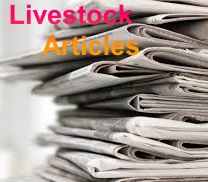Agri Role Players’ Wish Lists For SONA 2025
Agri role players’ wish lists for SONA 2025
By Glenneis Kriel | 2 February 2025 | 1:00 pm
Farmer’s Weekly asked leading agricultural role players about their expectations for the upcoming State of the Nation Address (SONA) on 6 February, as well as their views on government’s progress in delivering on promises made during SONA 2024.
President Cyril Ramaphosa is set to deliver the State of the Nation Address (SONA) on 6 February. Photo: Flickr | GovernmentZA
According to Bennie van Zyl, general manager of TLU SA, little progress has been made since SONA 2024, with high unemployment, poor service delivery, infrastructural challenges and crime still serious challenges.
READ Mixed reactions to SONA 2024
He added that restrictions and policies that negatively affect business confidence, agricultural production and food security, such as expropriation without compensation and amendments to property rights, and corruption and state capture, which led to the dysfunction of state departments and corroded public trust, continue to erode any progress.
Van Zyl said that Ramaphosa would have to move away from the ANC’s ideological agenda to bring about meaningful change, by instead focusing on practical solutions that prioritise the country and its people.
“Commitment during SONA will continue to mean nothing until corruption and cadre deployment are addressed, which are causing a huge divide between what is being said and done. The way things are now, taxpayers, who are already heavily burdened, have to take the funding of various essential services upon themselves.”
However, Theo Boshoff, CEO of Agbiz, gave a much more positive response.
Boshoff said that a lot of emphasis was placed on addressing logistical challenges, the energy crisis and crime and corruption during last year’s SONA, and that it was encouraging to see that these issues continued to enjoy priority following the formation of the Government of National Unity (GNU).
He said that institutional reforms of electricity, logistics and water infrastructure were promised and being implemented through Operation Vulindlela and public-private partnerships.
In the energy sector, fewer regulatory and institutional reforms occurred, but the advantages of partnerships were already being observed.
While logistics reforms were occurring at a slower pace, said Boshoff, there had been no deviation from government’s commitment. The National Freight Logistics Roadmap, aimed at giving third parties access to the rail network and facilitating public-private participation at ports, were in progress, with some aspects already completed, Boshoff said.
Moreover, an Interim Economic Regulator had been established to set tariffs in this regard, and the network statement was published in December 2024 to provide a clear framework for private sector participation in the country’s rail network.
He said that he hoped government would continue to build on this progress, as it had been good for business confidence and sentiment, with the Agbiz Agribusiness Confidence Index showing recovery in the third and fourth quarters of 2024.
On commitments made to accelerate the redistribution of land and to establish a land reform agency during SONA 2024, Boshoff said that he hoped this would be made a priority in the coming year.
“Having a land reform agency will be beneficial to land reform, as it will be able to move and make decisions quicker than a government department,” he said.
Jannie Strydom, CEO of Agri Western Cape, said that he would like to see government build on what was already achieved in repairing and improving roads, rails and ports, and for trade relations to remain a priority to foster existing and develop new markets, and negotiate favourable market conditions, in terms of anything from phytosanitary requirements to tariffs.
Christo Conradie, stakeholder engagement, market access and policy manager at South Africa Wine, said he hoped to hear that government would offer its continued support to allow the South African Economic Reconstruction and Recovery Plan to reach its full operational and functional capacity, especially to allow the Port of Cape Town to have all the necessary equipment and systems to run smoothly.
He also hoped that South Africa could maintain its “no load-shedding status”, and that the country would be able to negotiate with the US to allow it to keep its preferential access to the US under the African Growth and Opportunity Act.

.jpg)






